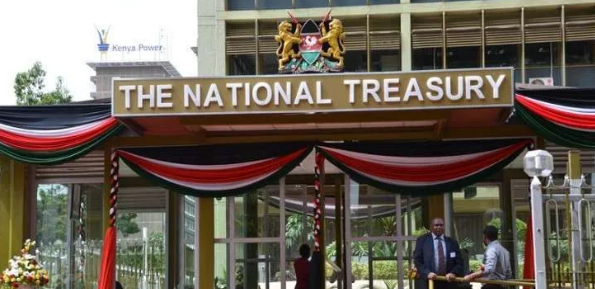The Public Debt Management Office (PDMO), a department at the National Treasury, has received a fresh mandate. Beginning next month, borrowing powers previously held by the Treasury Cabinet Secretary, will shift to this unit.
The 2012 Public Finance Management Act is seeking to introduce an independent director, to be competitively selected by the Public Service Commission, rather than appointed by the Cabinet Secretary, to manage the day to day operations of the office.
While the office will still operate from the Treasury, the law envisions an independent office with far-reaching powers in raising funds through borrowing to finance budget deficit, managing debt at minimum cost and risk, as well as being accountable for debt management operations.
PDMO was established, but had no policy document to guide its operations. The policy seeks to strengthen PDMO’s role in public debt management. It will be submitted to Cabinet by the end of January and come into force seven days after approval.
Public Debt Management Office Director-General, Mr Haron Sirima.
The principles of public debt management in Kenya are enshrined in the Constitution and the Public Finance Management (PFM) Act (2012) and the Public Finance Management Regulations.
This change in the legal framework of how prudently public debt is managed comes at a time when the IMF has issued a scathing report of Kenya fiscal management. In its Fiscal Transparency Evaluation Update, dated January 15th 2020, the IMF reports that the transparency and credibility of the debt sustainability principle is undermined by conflicting reports of the level of debt and the acceptable limit.
While the 2015 Legal Notice sets a maximum debt level of 50% of GDP, budget documents instead assess debt to be sustainable—and therefore acceptable—if it is less than 70% of GDP in NPV terms.
The IMF report notes that there is a lack of transparent methodology for the construction of the debt measure, which depends heavily on the discount rate chosen by the National Treasury, which then also hampers the operational credibility of the debt principle.
In the new changes at the Public Debt Management Office, Sirima, a former technocrat at the Central Bank of Kenya, says management of public debt will be more open with more disclosures, reporting and periodic audits.
A strengthened public debt portfolio will also form a dovetail between monetary, fiscal policy and public debt management
As present, the Treasury CS has a wide range of powers including preparing the national budget, setting borrowing targets and making deals with multilateral aid agencies.
As at October last year, Kenya had a total public debt of over Sh5.902 trillion, comprising KSh2.836 Trillion in domestic debt while the total external public debt was KSh Sh3.066 trillion.
See Also:



